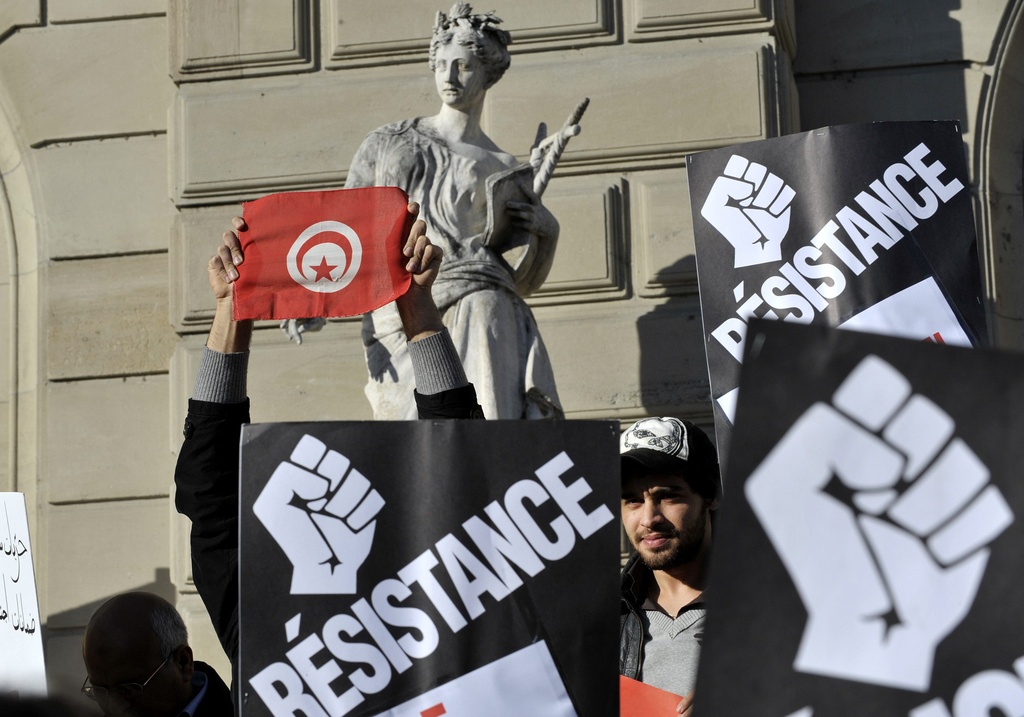
Banks probed over dictator asset rules

Four Swiss banks are being targeted by the market regulator for not conducting proper checks when dealing with accounts held by suspicious persons.
The Swiss financial market regulator (Finma) has moved against four banks which it says have not fulfilled due diligence obligations in relation to dictator’s assets.
Finma said it had conducted an “extraordinary audit” of 20 banks’ dealings with politically exposed persons (Peps) in the wake of decisions by the Swiss government to freeze assets belonging to the former leaders of Egypt, Tunisia and Libya earlier this year.
At the start of May, the Swiss foreign ministry said a total of SFr830 million ($915.7 million) had been frozen. Media reports have suggested that worldwide, Libyan assets totalling $35 billion have been blocked.
Of a total 29 Pep client relationships revealed by the investigation, 22 were identified correctly, the Finma report says. Seven client relationships were either not identified as politically exposed persons, or were but were not treated as such.
“Finma deemed specific points of the approach adopted at four banks to be inadequate and has initiated enforcement proceedings,” the regulator said in a statement.
At banks where minor shortcomings were identified, Finma is monitoring the implementation of new measures and stepping up the intensity of its general anti-money laundering supervision.
Investigation
The regulator’s investigation required banks provide a wide range of documentation including account-opening documents, client correspondence, memos and statements of account movements since January 1, 2009.
The investigation identified three key problem areas in the identification processes used by banks for politically exposed persons.
At one bank, the internal definition of a Pep was too narrow, while three banks carried out only an “exact match” search when initiating a client relationship, when a phonetic search possibly accompanied by an internet search would have been appropriate.
And in two cases there were indications that the client relationships “may have been deliberately treated neither as Peps nor as higher-risk business relationships even though they had been identified as such”.
Finma said it was still investigating the last two cases as part of enforcement proceedings.
In three cases, annual decisions on maintaining the relationship with politically exposed clients was inadequately documented.
The regulator concluded that banks are aware of their obligations under Switzerland’s Anti-Money Laundering Act and in the majority of cases implement them in a satisfactory manner. It said it did not see the need for changes to the law.
“Incomprehensible”
Asset recovery expert and chairman of the board of the Basel Institute on Governance Mark Pieth told swissinfo.ch there could be “no pardon” for banks that were found to have deliberately covered up relationships with Peps.
“The report says that in two cases they were aware and helping to hide the money, if that’s the case, it’s money laundering and they will have a criminal case to answer,” Pieth said, adding the bank as the institution could also face criminal charges.
Pieth said the report was a “mixed story” given that only four banks had been found in breach of the rules. But he said it was “annoying” that leaders like Moammar Gaddafi had spent years being able to send money around the world.
“It’s not a question of revising the (anti-money laundering) law, it’s a question of applying it,” Pieth said. “I think it’s a bit strange that Finma would start their investigation at this point. They should be far more proactive in ordinary life, they can’t just wait until the scandal breaks to act.”
The Swiss coalition of non-government organisations immediately criticised the report, saying it was disappointed Finma had not disclosed which Pep relationships were reviewed and which banks had been judged to have breached the rules.
The NGOs also said Finma’s conclusion that there was no need for action in terms of changes to anti-money laundering regulations was “incomprehensible”.
“The report dwells only on the assets of persons whose assets have been frozen by order of the government,” the NGOs said in a statement. “It remains to be seen whether other associates or offshore companies had assets with the banks.”
The Swiss Bankers Association (SBA) said in a statement provided to swissinfo.ch the Finma report demonstrated that the rules for dealing with Peps are largely respected by the banks.
“Furthermore, we note that Finma considers the existing provisions on dealing with Peps as being sufficient. In single cases where rules have been infringed, banks will work closely with Finma to improve their respective proceedings,” the SBA said.
Switzerland has a long experience of dealing with such clients.
But no plundering dictator opens an account in his own name: they use their relatives, lawyers or other middlemen and even their bodyguards and mistresses.
Being a Pep isn’t in itself bad but problems arise when he or she starts to take bribes or steals from the central bank.
If a country starts criminal proceedings against a Pep, it can ask Switzerland for international judicial assistance and the Swiss will freeze the assets if requesting country shows why this is necessary.
Banks have very detailed and sophisticated data bases at their disposal.
They list not only heads of state, wives, children and government ministers, but also senior officials in countries. Bank staff can use it to check the name of a would-be depositor.
(With input from Urs Geiser)

In compliance with the JTI standards
More: SWI swissinfo.ch certified by the Journalism Trust Initiative










































You can find an overview of ongoing debates with our journalists here . Please join us!
If you want to start a conversation about a topic raised in this article or want to report factual errors, email us at english@swissinfo.ch.